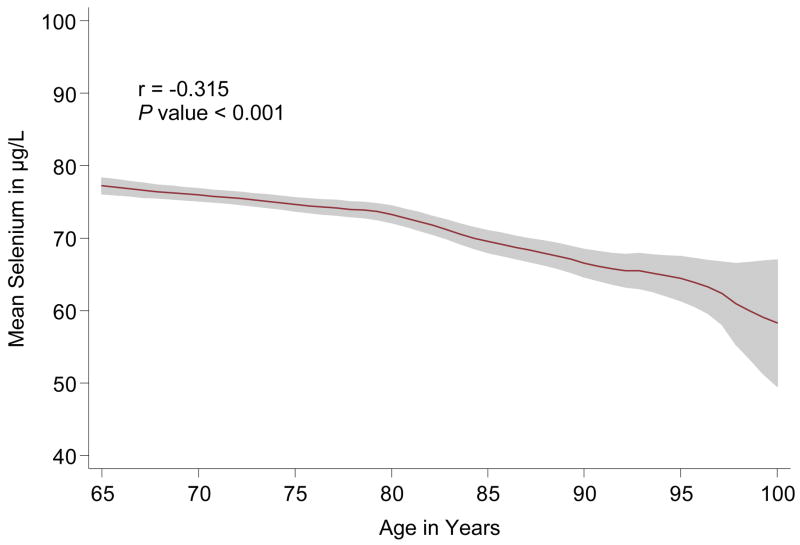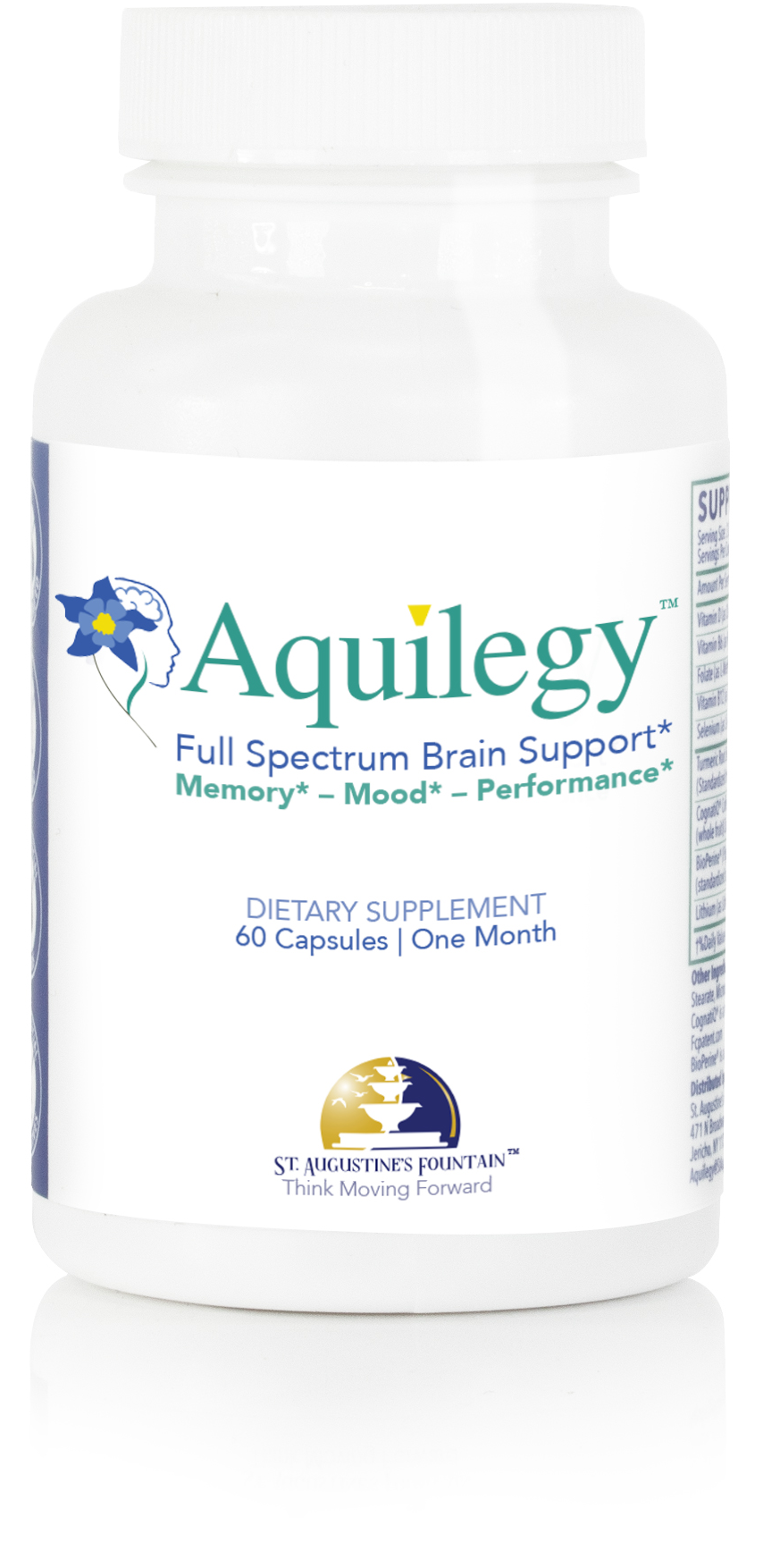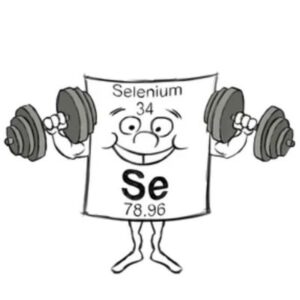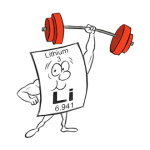Selenium And Memory
Selenium plays a vital role in maintaining brain health. Research indicates that this essential mineral can significantly enhance the production of glutathione, which is recognized as one of the most powerful antioxidants in our body. Additionally, selenium may offer protective benefits for the brain, contributing to improved memory and learning.
Selenium Is Associated With Higher Cognitive Function.
A study compared 28 people with memory loss to 29 people with normal cognitive function. It found the people with memory loss had significantly lower blood levels of selenium (1).
A study of 2,000 people found a significant association with lower selenium levels and lower scores on cognitive testing. The researchers found a consistent, dose-dependent relationship with higher selenium intake and higher cognitive functioning (2).
Study Shows Positive Effects of Selenium on Glutathione & C-Reactive Protein
A 12-week study showed selenium supplementation to be associated with:
1) Significantly decreased c-reactive protein (a marker that indicates inflammation)
2) Reduced insulin resistance
3) Significantly higher levels of glutathione compared to those taking placebo (3)
Inflammation and insulin resistance have both been linked to memory loss, raising concerns about their impact on cognitive health. Glutathione, a crucial antioxidant, plays a pivotal role in safeguarding our brain’s well-being.
Research increasingly highlights the importance of antioxidant defense in promoting brain longevity. Compared to placebo, selenium supplementation was associated with cognitive improvements and a significant increase in total antioxidant activity (3).
Selenium Protects The Brain.
Selenium is involved in most of the key molecular pathways related to memory retention and longevity (4).
A study published in 2017 found a direct association between selenium levels and glutathione. It also found lower levels of selenium in patients who had memory loss compared to those who did not (5).
Another study found significantly lower levels of selenium in those with memory loss compared to those with normal cognitive function. The authors of this study suggest deficiency of selenium may contribute to cognitive decline among aging people as the data found a strong correlation between selenium exposure and cognitive function (6).
Aquilegy Uses L-Selenomethionine.
To ensure maximum absorption and efficacy, Aquilegy uses the most active form of selenium, L-selenomethionine.

(Shahar, A., Patel, K. V., Semba, R. D., Bandinelli, S., Shahar, D. R., Ferrucci, L., & Guralnik, J. M. (2010). Plasma selenium is positively related to performance in neurological tasks assessing coordination and Motor Speed. Movement Disorders, 25(12), 1909–1915. https://doi.org/10.1002/mds.23218)

1) Cardoso, B. R., Ong, T. P., Jacob-Filho, W., Jaluul, O., Freitas, M. I., & Cozzolino, S. M. (2009). Nutritional status of selenium in alzheimer’s disease patients. British Journal of Nutrition, 103(6), 803–806. https://doi.org/10.1017/s0007114509992832
2) Gao, S., Jin, Y., Hall, K. S., Liang, C., Unverzagt, F. W., Ji, R., Murrell, J. R., Cao, J., Shen, J., Ma, F., Matesan, J., Ying, B., Cheng, Y., Bian, J., Li, P., & Hendrie, H. C. (2007). Selenium level and cognitive function in rural elderly Chinese. American Journal of Epidemiology, 165(8), 955–965. https://doi.org/10.1093/aje/kwk073
3) Tamtaji, O. R., Heidari-soureshjani, R., Mirhosseini, N., Kouchaki, E., Bahmani, F., Aghadavod, E., Tajabadi-Ebrahimi, M., & Asemi, Z. (2019). Probiotic and selenium co-supplementation, and the effects on clinical, metabolic and genetic status in alzheimer’s disease: A randomized, double-blind, controlled trial. Clinical Nutrition, 38(6), 2569–2575. https://doi.org/10.1016/j.clnu.2018.11.034
4) Du, X., Wang, C., & Liu, Q. (2015). Potential roles of selenium and Selenoproteins in the prevention of alzheimer’s disease. Current Topics in Medicinal Chemistry, 16(8), 835–848. https://doi.org/10.2174/1568026615666150827094936
5) Reddy, V. S., Bukke, S., Dutt, N., Rana, P., & Pandey, A. K. (2017). A systematic review and meta-analysis of the circulatory, erythrocellular and CSF selenium levels in alzheimer’s disease: A metal meta-analysis (Amma Study-I). Journal of Trace Elements in Medicine and Biology, 42, 68–75. https://doi.org/10.1016/j.jtemb.2017.04.005
6) Rita Cardoso, B., Silva Bandeira, V., Jacob-Filho, W., & Franciscato Cozzolino, S. M. (2014). Selenium status in elderly: Relation to cognitive decline. Journal of Trace Elements in Medicine and Biology, 28(4), 422–426. https://doi.org/10.1016/j.jtemb.2014.08.009







